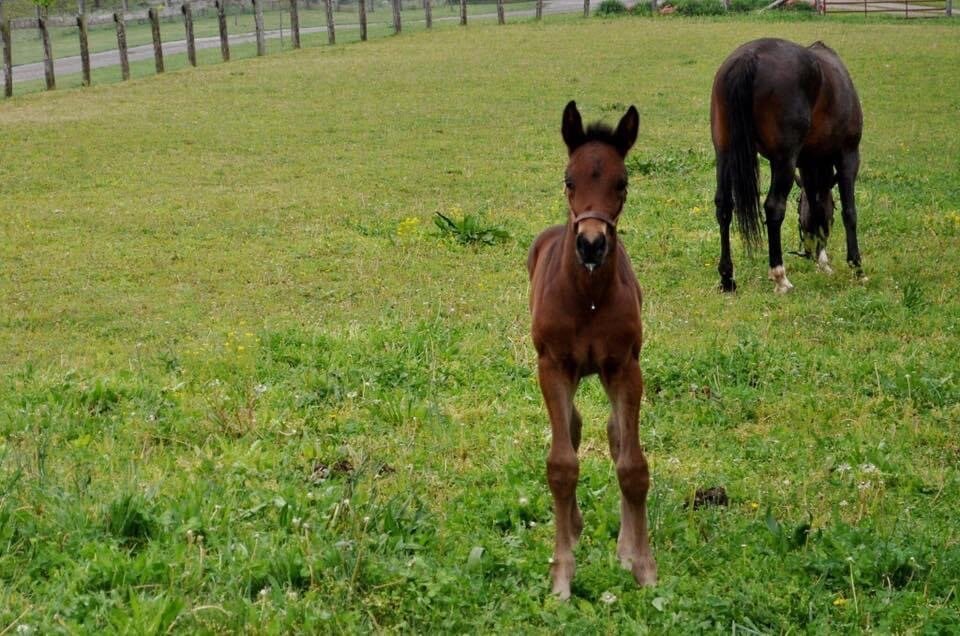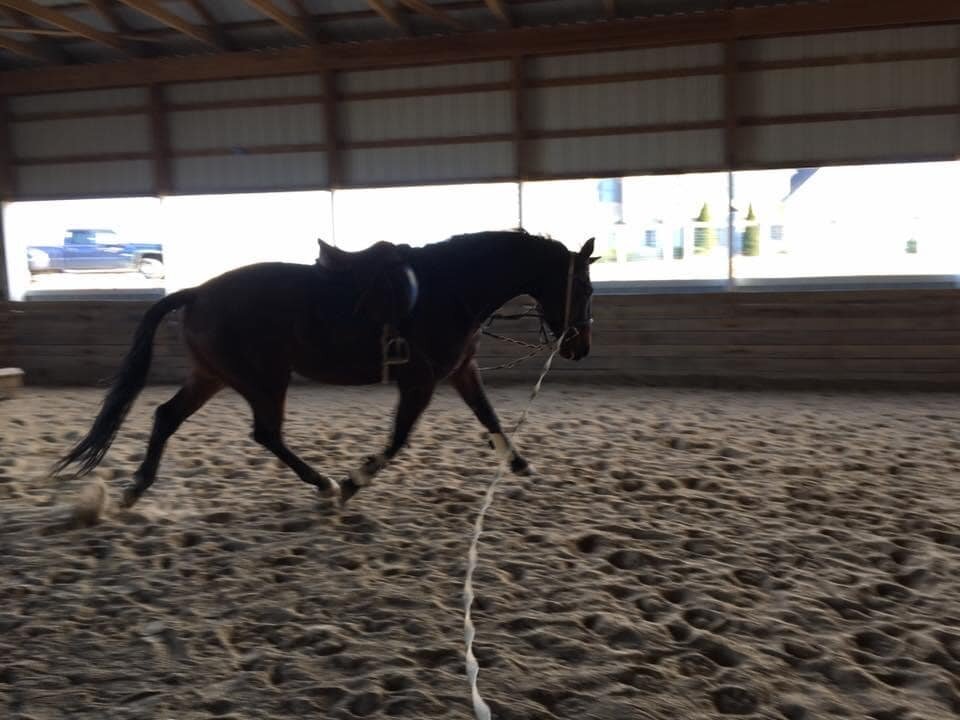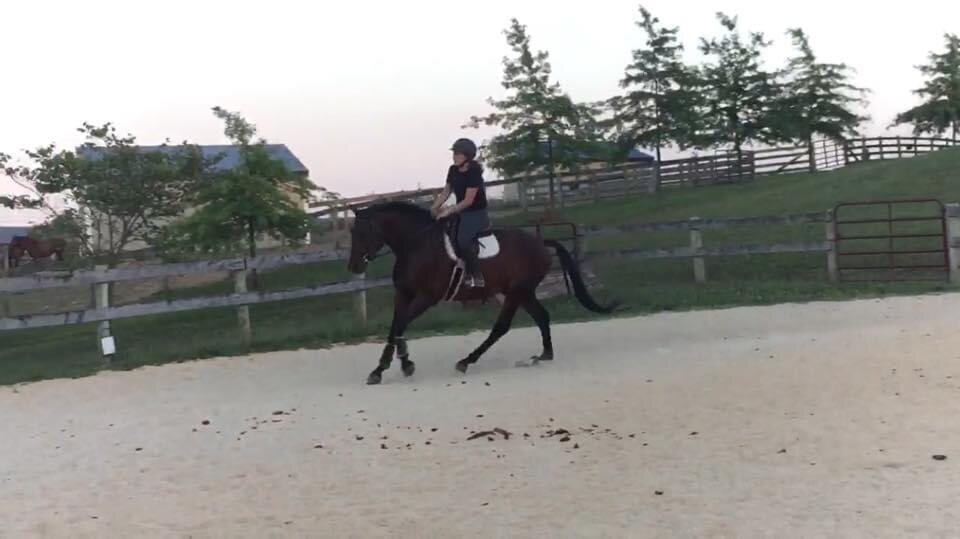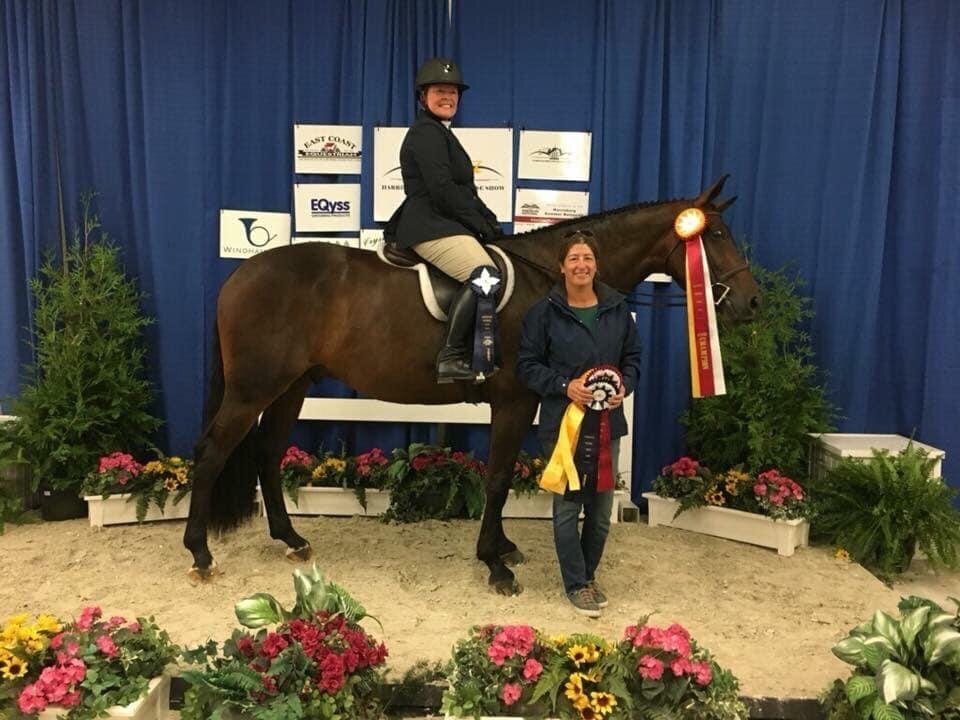
Young Hunter/Jumper Horse BREAKING & TrainING
Prepare Your Young Horse for a Successful Future
The beginning of a horse’s career has a direct impact on their future. Why not give your young horse the best start possible, by a program that has more than 30 years of experience in developing horses for long, successful careers? Breaking a young horse is a critical phase that sets the foundation for their entire training journey.
The horses we have started have gone on to compete (and ribbon at) at the U.S. Junior Hunter Championships, Zone 2 Championships, Pennsylvania National Horse Show, Washington International Horse Show, the National Horse Show, and the USEF Dressage National Championship for Young Horses.
But, more importantly, they’ve gone on to be willing partners for their owners and happy in their work.
Starting and backing a horse is a process that some horses catch on to quicker than others, and, therefore, our program does not follow a rigid schedule, but instead is customized to each individual horse as well as flexible based on the horse’s nature. Consistency, patience, and positive reinforcement are key.
We believe that establishing correct groundwork, and therefore confidence and trust, directly correlates with an easy, stress-free experience under saddle.
If you are interested in learning more about our program for young and green horses, please send us a message—we look forward to speaking with you and determining the best approach to fit your horses needs. Our program does accept stallion prospects for licensing preparation on a case-by-case basis.
Looking for a training program past young horse breaking? Click here to learn more!
Kelly William’s Headliner FF (Vinca x Equador/Zonneglans) — raised & started at Ashcombe Sporthorses then a winning competitor in the Green & Adult Hunters.
Ready to get started?
We invite you to use the link below to contact us. Or, reach out to us via email at info@ashsporthorses.com.
Starting and Backing Young Horses FAQ
-
Breaking a young horse refers to the process of introducing them to saddle and rider, teaching them basic commands, and establishing a foundation for future training.
-
The ideal age to start breaking a horse varies, but most experts recommend beginning the process between 3 and 4 years old, allowing the horse's skeletal and muscular development to progress.
It is important, however, to individualize the process, as not every 3 or 4 year old is the same.
-
Breaking a young horse requires knowledge, skill, and experience in handling young equines. It's advisable to seek guidance from a professional trainer or mentor if you're not experienced in this aspect of horsemanship. Here at Ashcombe Sporthorses, we’d be happy to work with you and your young horse.
-
The duration of breaking varies for each horse. It may take a few weeks to several months, depending on the horse's temperament, prior handling, and the consistency of training.
-
Positive reinforcement, desensitization, and gradual introduction to new stimuli are common methods. A calm and patient approach, coupled with clear communication, builds trust between the horse and trainer.
-
If you lack experience, it's advisable to seek the assistance of a professional trainer, like those here at Ashcombe Sporthorses. Working with an experienced individual ensures the safety of both you and the horse, and it provides a solid foundation for future training.
-
In essence, "breaking" encompasses the initial training stages, laying the groundwork for a positive and cooperative relationship between the horse and handler. "Backing," on the other hand, is a specific subset of training focused on introducing the horse to the rider's presence and cues, transitioning from groundwork to the early stages of riding. Both processes are critical in the overall development of a well-trained and confident horse.
-
After breaking, continue with ongoing training to refine the horse's skills depending on the goals you have for them. Gradually expose them to new environments, experiences, and challenges to build a well-rounded and confident equine partner.




